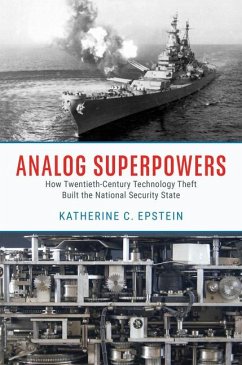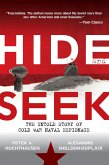"The technology at the center of this book marks a milestone in computing history. Until the late nineteenth century, naval gun crews aimed and fired at virtually point-blank ranges, but as warship speeds and battle ranges grew, it became necessary to predict where the target would be when a projectile landed. Two British civilian inventors, Arthur Pollen and Harold Isherwood, insisted that the only way to predict with sufficient speed and accuracy to enable hits in battle was to incorporate all the relevant variables into mathematical equations and to develop instruments for solving them instantaneously and continuously. This insight led them to build an integrated, gyro-stabilized system for gathering data, calculating predictions, and transmitting the results to the gunners. At the heart of their system was the most advanced analog computer of the day. In addition to being a landmark technological achievement, Pollen and Isherwood's invention also took on legal significance. Its value was so evident that first Britain's Royal Navy and then the US Navy paid them the compliment of pirating it. The inventors' attempts to gain compensation in the courts had rippling effects on how the two leading liberal societies of the modern era struggled to reconcile their ideological commitment to private property rights with the perceived imperatives of national security. Their story shows that the modern American national-security state and secrecy regime, which are often associated with atomic energy during the mid-twentieth century, had longer, trans-Atlantic roots. It also shows that the United States, in its rise to global hegemony, relied heavily on the acquisition of British technology by fair means or foul-much as Americans accuse China of doing to the United States today"--
Hinweis: Dieser Artikel kann nur an eine deutsche Lieferadresse ausgeliefert werden.
Hinweis: Dieser Artikel kann nur an eine deutsche Lieferadresse ausgeliefert werden.








